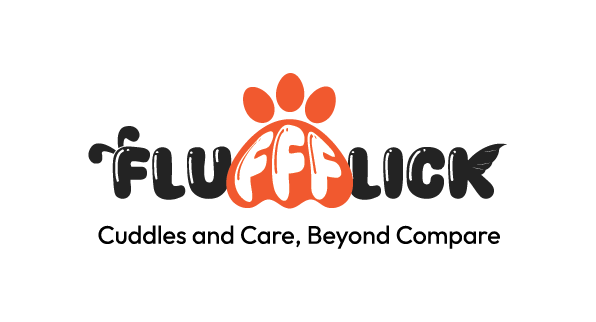Bringing a new dog into your home is an exciting and rewarding experience, but it can also be overwhelming, especially for first-time dog owners. A new dog, whether a puppy or an adult, requires proper care, attention, and training to ensure they thrive in their new environment. To help you navigate the early stages of pet ownership, we’ve compiled essential first-time dog owner tips that cover everything from caring for a puppy to understanding dog care basics.
1. Prepare Your Home for Your New Dog
Before bringing your new dog home, it’s important to create a safe and comfortable environment for them. Here’s how:
- Dog-Proof Your Home: Just like you would baby-proof a house, you need to make sure your home is safe for a curious dog. Remove any dangerous items within reach, such as toxic plants, small objects they could swallow, or exposed electrical cords.
- Designate a Dog Area: Set up a designated area in your home where your dog can relax and sleep. This could include a comfortable bed, some toys, and easy access to water.
- Purchase the Essentials: Before your new dog arrives, gather all the necessary supplies, including a leash, collar, food and water bowls, a crate, and toys to keep them entertained.
2. Get to Know Your Dog’s Routine
Establishing a routine is essential for both you and your dog. First-time dog owner tips often emphasize the importance of consistency, especially when it comes to feeding, walking, and training. Here’s how you can develop a routine that works for both of you:
- Feeding Schedule: Feed your dog at the same time every day to help them adjust to a regular eating routine. Puppies typically need to eat more frequently than adult dogs, so be sure to consult your vet for feeding guidelines based on your dog’s age and breed.
- Walking and Potty Training: Take your dog for walks at regular intervals throughout the day. This not only helps with exercise but also establishes a routine for potty breaks. Caring for a new dog means being patient, especially when it comes to house training.
- Bedtime Routine: Just like humans, dogs benefit from a consistent bedtime routine. Make sure they have a quiet, comfortable space to sleep, and establish a set time for them to go to bed.
3. How to Take Care of a Puppy
If you’re adopting a puppy, you’ll need to focus on how to take care of a puppy, as their needs are different from adult dogs. Puppies require special attention in terms of feeding, training, and socialization. Here are a few key things to keep in mind:
- Puppy Proofing: Puppies are naturally curious and may chew on items or get into things they shouldn’t. Make sure hazardous items are out of reach, and provide plenty of toys to keep them occupied.
- Socialization: One of the most important new dog owner advice tips is to socialize your puppy from a young age. Expose them to different people, animals, and environments to help them grow into a well-adjusted dog.
- Training: Start training your puppy early. Basic commands like “sit,” “stay,” and “come” are crucial for their safety and well-being. Positive reinforcement, such as treats and praise, works well with puppies.
- Puppy Nutrition: Ensure that you’re feeding your puppy a diet specifically formulated for their growth. Puppies need extra nutrients to support their developing bones and muscles. Check with your vet for the best feeding schedule and food type for your puppy’s breed.
4. Basic Training and Commands
Training is a fundamental part of dog care basics, and it should start as soon as your new dog arrives. Whether you’re working with a puppy or an older dog, here are some important training tips:
- Start with Basic Commands: Begin by teaching essential commands like “sit,” “stay,” “down,” and “come.” These commands help manage your dog’s behavior and keep them safe in various situations.
- Crate Training: Crate training can be an effective way to house-train your dog and provide them with a safe, comforting space. Make sure the crate is just large enough for them to stand up, turn around, and lie down comfortably.
- Leash Training: Walks are essential for exercise, but your dog must be trained to walk on a leash without pulling. Leash training ensures that walks are enjoyable for both you and your dog.
- Consistency is Key: Dogs thrive on consistency, so use the same commands and reward good behavior. Be patient and give your dog time to learn and adjust.
5. Provide Proper Exercise and Mental Stimulation
Exercise is critical to your dog’s physical and mental health. Every dog, no matter the breed, requires some level of daily exercise. This could include walks, playtime, or even agility training. Here’s how to make sure your dog gets the exercise and stimulation they need:
- Daily Walks: Make sure your dog gets at least one or two walks a day, depending on their energy levels. Active breeds may require longer or more frequent walks.
- Interactive Toys: Toys that challenge your dog mentally, such as puzzle toys or treat-dispensing balls, can help prevent boredom and destructive behaviors.
- Playtime: Dedicate time each day to play with your dog. Fetch, tug-of-war, and hide-and-seek are fun activities that also provide mental and physical stimulation.
6. Regular Vet Visits and Preventive Care
One of the most important first-time dog owner tips is to stay on top of your dog’s health. Regular vet visits and preventive care can help ensure your dog stays healthy and happy.
- Vaccinations: Make sure your dog is up-to-date on their vaccinations, especially if they’re a puppy. Vaccines protect your dog from serious illnesses and should be administered according to your vet’s recommended schedule.
- Flea and Tick Prevention: Regularly use flea and tick prevention products, especially if you live in an area where these parasites are common.
- Dental Care: Brushing your dog’s teeth and providing dental chews can help prevent dental diseases, which are common in dogs.
- Spaying/Neutering: If your dog hasn’t been spayed or neutered, consult with your vet about the best time to do so. Spaying and neutering can have health benefits and help control the pet population.
7. Love and Patience
Lastly, as a new dog owner, your most important responsibility is to provide your dog with plenty of love and patience. Dogs are loyal and loving companions, but they also require time and effort to adjust to their new home and routines.
- Bonding Time: Spend quality time bonding with your dog through play, walks, and just being together. Building trust is key to a strong, happy relationship with your pet.
- Patience is Key: Whether you’re dealing with training challenges or adjusting to a new routine, it’s important to remain patient. Every dog learns at their own pace, and with consistent care, they’ll thrive.
Conclusion
Becoming a new dog owner is a rewarding experience, but it comes with its own set of challenges. By following these first-time dog owner tips, you can ensure that your new furry friend feels safe, loved, and well-cared for. From how to take care of a puppy to mastering the dog care basics, the key is to remain patient, consistent, and always willing to learn. With proper care and attention, your dog will grow into a happy and healthy companion for years to come.

